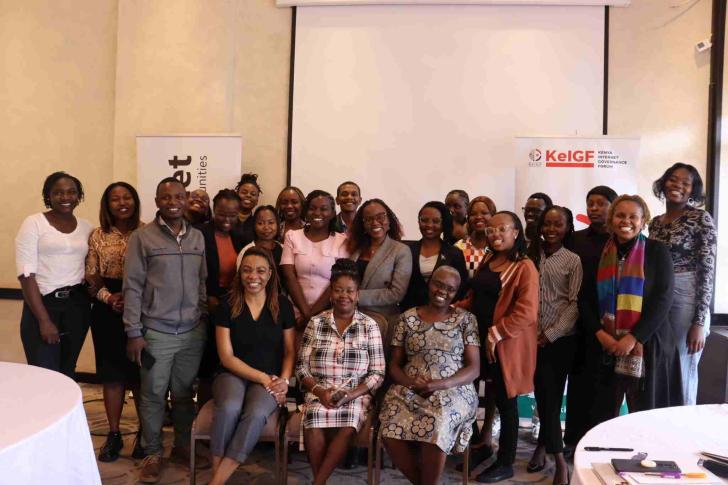
This piece was originally published on the website of APC member organisation KICTANet.
The Kenya Internet Governance Forum (KeIGF) kicked off its week with a focus on women’s rights in the digital age.
KICTANet in partnership with the Association of Progressive Communications (APC) hosted a roundtable discussion on “Women’s Inclusion for a Multi-stakeholder Digital Future”, aimed to popularize the Feminist Principles of the Internet (FPIs) and encourage women’s meaningful participation in Internet governance.
Dr. Grace Githaiga, CEO of KICTANet, highlighted Kenya’s thriving young population and its role in driving innovation. She emphasized the importance of digital activism as a tool for holding institutions accountable and creating positive change.
In addition, she spoke on the importance of digital literacy and critical thinking, as well as the role of social media in mobilizing people and amplifying marginalized voices. The issue of government shutdowns and their impact on digital activism was also raised, along with the potential for digital activism to create a more inclusive and participatory democracy.
Feminist principles in the Global Digital Compact
Amanda Manyame, Equality Now’s Digital Rights Advisor, discussed the importance of integrating the FPIs into the upcoming Global Digital Compact, a UN initiative promoting an open and secure digital future.
The Compact will be the first international agreement to comprehensively address digital governance.
Why feminist principles matter
According to Amanda, the FPIs, developed by a coalition of organizations, provide a framework for protecting women’s rights online. Some of the key areas include:
- Public commitments to protect the digital rights of women and girls, particularly those facing discrimination.
- Freedom from technology-based violence, including measures to address online harassment and empower survivors.
- Universal access to the Internet for all, ensuring affordability, accessibility, and diverse languages.
- Safeguarding human rights, demanding action against discriminatory AI systems and ensuring privacy in the digital workplace.
Within the Kenyan context, integrating the FPIs into the Kenyan ICT Law Reform process will entail:
- Strengthening Kenyan law to hold transnational corporations accountable for online harms against women.
- Promoting human-rights-based design of technology to address algorithmic bias and data privacy.
Empowering women in STEM fields by encouraging girls to pursue careers in technology and fostering safe work environments.
Reimagining a feminist internet
Cherie Oyier, KICTANet’s Programs Officer for the Women’s Digital Rights Program, outlined her vision for a future aligned with how the FPIs empower women.
One is affordable internet access for all, including access to sexual and reproductive health information. Two, digital literacy programs that equip women to become creators and leaders in the tech industry.
Three, the creation of safe online spaces free from harassment and discrimination and inclusive internet governance with women’s voices shaping policy decisions.
She also said everyone needs to advocate for digital equality, including affordable access, bridging the gender gap, and promoting diverse online languages. Embracing personal agency online by controlling what you share and how you express yourself besides protecting your privacy and security online.
“The internet should empower everyone to access information freely, express themselves authentically, control their data, and join movements that make a difference,” emphasised Cherie.